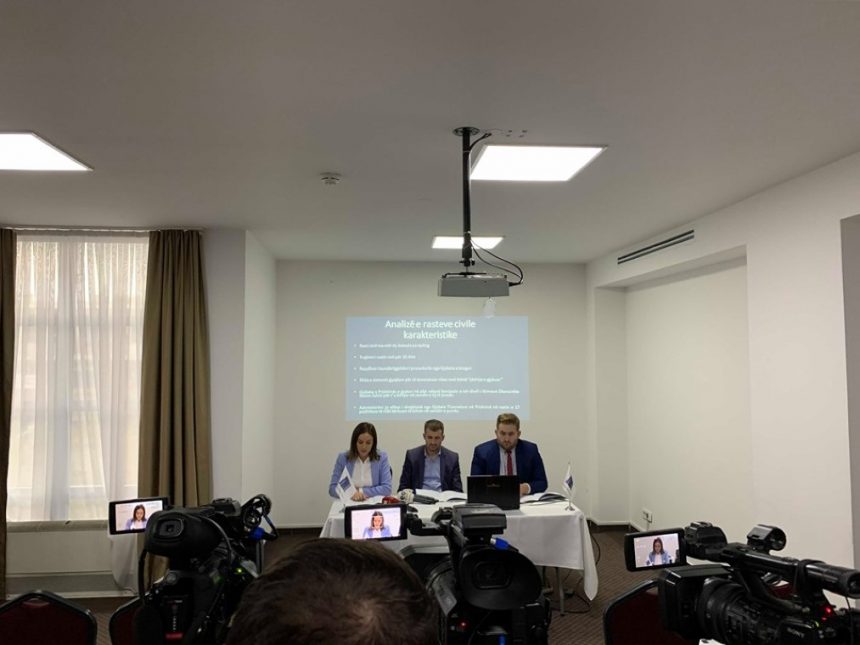Pristina, November 3 2019 – Kosovo Law Institute (KLI), with the support of US Department – International Narcotics Bureau and Law Enforcement Matters (INL) and NED, on Sunday held press conference, on which has published the report: “Civil Justice in Kosovo: Law VS Practice”.
Ehat Miftaraj Executive Director of the KLI said that this report is result of systematic monitoring of civil cases by the KLI. According to him, judicial system of the Republic of Kosovo has failed to provide an effective remedy, adding that there are cases when judges have treated civil cases in selective way.
Miftaraj has emphasized that in civil cases, phenomenon of return of cases by the Appeal Court in restatement had a significant raise. Miftaraj has requested from the Appeal Court to take into consideration final settlement of cases, except cases when it is necessary that the Appeal Court to return the case in restatement in the first instance.
Gzim Shala, researcher at the KLI, said that despite the fact that since 2016 until 2019 number of judges was increased, number of unresolved cases were increased year after year. According to him, it is impossible for the judicial system with this tempo to achieve stability of number of civil cases.
In the first six months of 2019 166 civil cases were completed more than have been received. By this tempo, judicial system needs 132 years to complete all unresolved cases, which are transferred year after year. If judges would have reached orientation norm, these cases would be completed for about 2 years. In this regard, it is necessary that KJC during the process of performance evaluation take into account the (non) achievement of the orientation norm, as well as KJC should review the regulation itself that sets the guiding norms.
According to Shala, KLI has found selective treatment of cases, whereas a civil case even after 22 years was not resolved, there are cases which have been resolved for only 35 days. “Delay of civil proceedings have two consequences. First is that loses the public confidence to the justice system and second is that these delays become criminal factors that citizens take justice in their own hands, as they have no hope that they will resolve their cases through court proceedings”.
On the other hand, Shqiponje Gashi, Researcher at the KLI, has recommended that judicial system be maximally engaged that civil cases be completed within a reasonable time. In this regard, KJC should understand the fact that delay of cases with decades seriously violates the rights and freedoms of citizens to have a court proceeding within a reasonable time.
As well, Gashi has recommended that courts to treat cases in the order, apart cases when priority is given by law, and not to have selective access. To hold responsible judges that violate these priorities of law and policies of the KJC.
For more find attached the report IKD – Drejtësia Civile – Ligji vs. Praktika – 03.11.2019.

